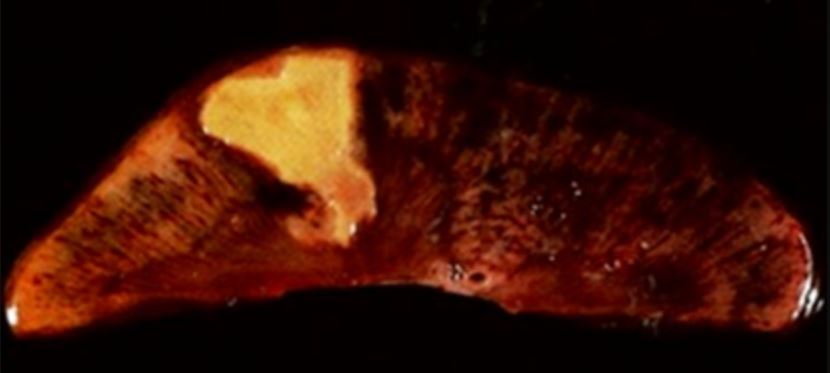Playlist
Show Playlist
Hide Playlist
Free Radical Protection – Mechanisms of Cellular Injury
-
Slides Cellular Pathology Mechanisms of Injury.pdf.pdf
-
Reference List Pathology.pdf
-
Download Lecture Overview
00:02 How do we protect ourselves against us? Well, fortunately, if free radicals don't encounter something, they do spontaneously decay. 00:09 So those the electron gets paired and it will no longer be a free radical and quite so reactive. 00:16 We have a number of enzymes, superoxide dismutase (SODs) that will turn superoxide free radical with a couple protons in the hydrogen peroxide and oxygen and we can further breakdown that hydrogen peroxide in just a second. 00:30 So we have ways to degrade it. 00:32 And we have high levels of these enzymes, where we expect high levels of free radicals to be generated. 00:40 We have circulating and then in cells, particularly. 00:44 A glutathione peroxidase system, and glutathione is a tripeptide. 00:48 It's gamma-glutamyl cysteine glycine, which has a free self hydro-group, when it encounters oxygen free radicals that scavenges it and by making a disulfide bond and then the glutathione peroxidase turns that disulfide linked glutathione back into the native glutathione and we're good to go. 01:09 So we have another mechanism and this is a normal tripeptide and a normal enzyme that exists exclusively to clear free radicals. 01:19 Catalases, I mentioned we have a way to get rid of hydrogen peroxide, and we could break that down into water and oxygen. 01:26 So we have multiple different mechanisms by which we can protect ourselves against free radicals. 01:31 And we've also talked already about free radical scavengers such as Vitamin E. 01:35 And it turns out that there are other proteins that we have circulating such a ceruloplasmin and others, whose job it is to wander around, find a free radical, scavenge it and inactivate it. 01:47 Finally, let's talk about mitochondrial damage. 01:52 And this is also an important mechanism by which we can get biochemical injury.
About the Lecture
The lecture Free Radical Protection – Mechanisms of Cellular Injury by Richard Mitchell, MD, PhD is from the course Cellular Injury.
Included Quiz Questions
Which of the following plays a protective role against free radicals?
- Glutathione peroxidase
- NADPH oxidase
- Cytochrome C oxidase
- Xanthine oxidase
- Nitric oxide synthase
Customer reviews
5,0 of 5 stars
| 5 Stars |
|
5 |
| 4 Stars |
|
0 |
| 3 Stars |
|
0 |
| 2 Stars |
|
0 |
| 1 Star |
|
0 |




